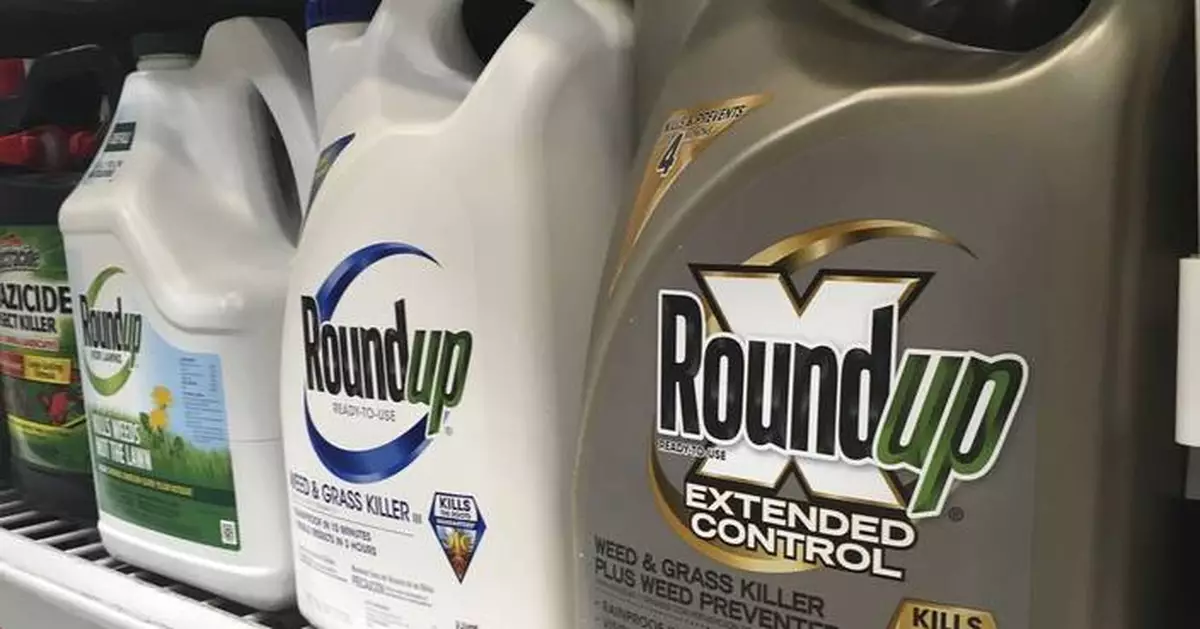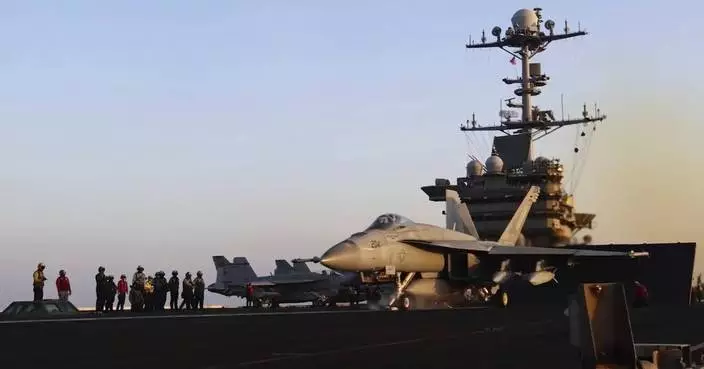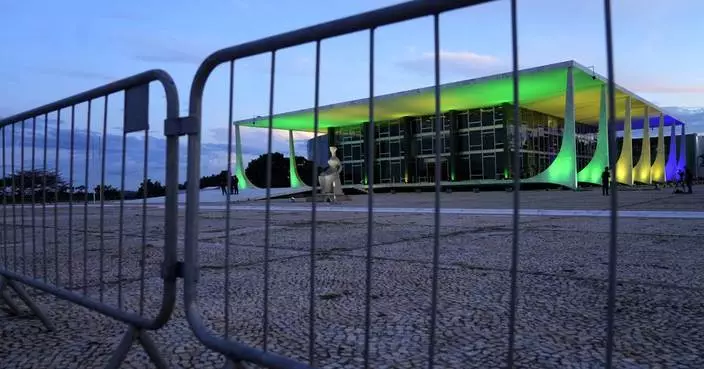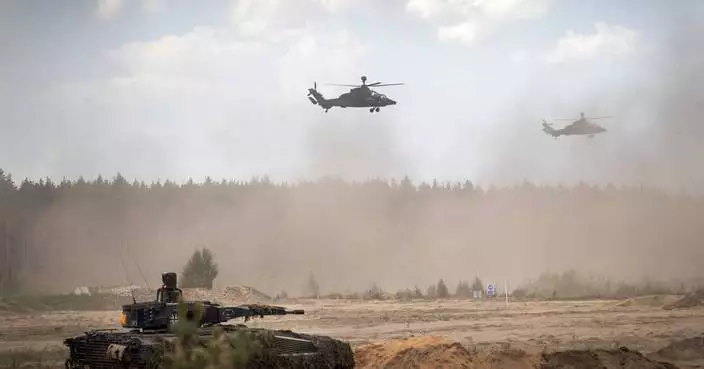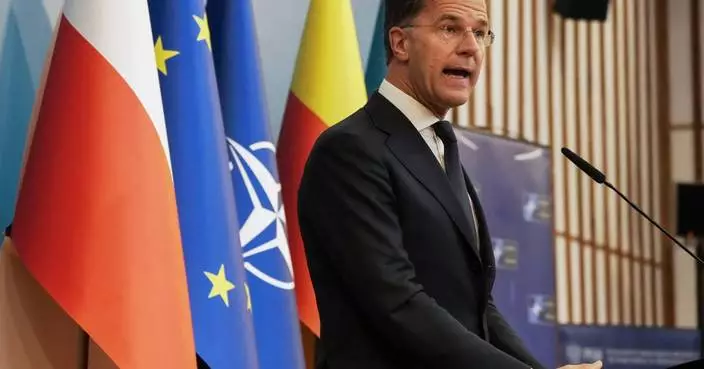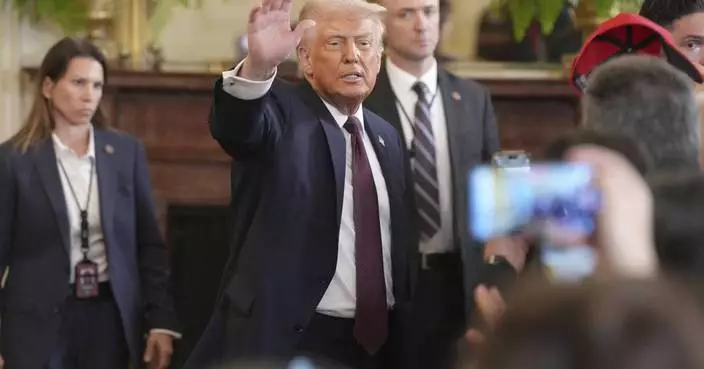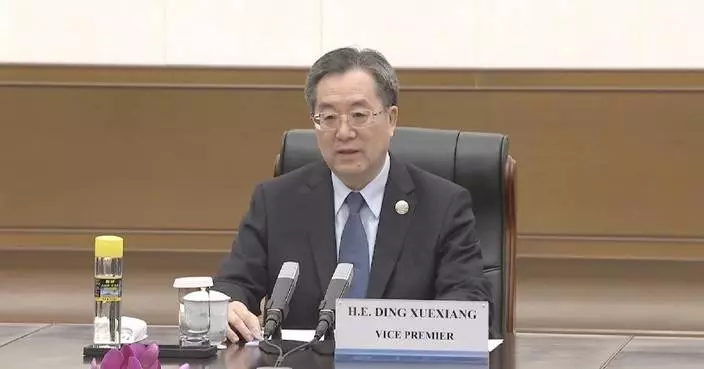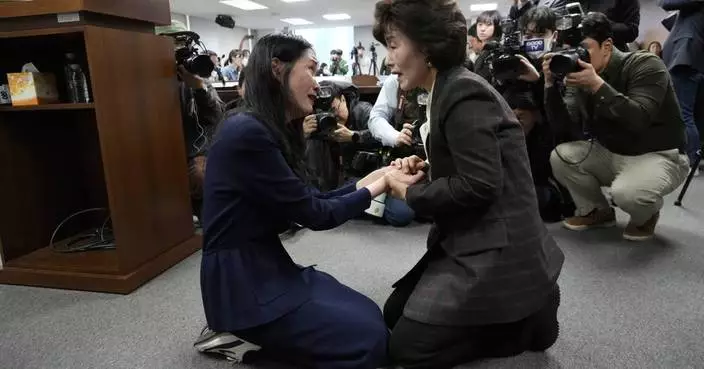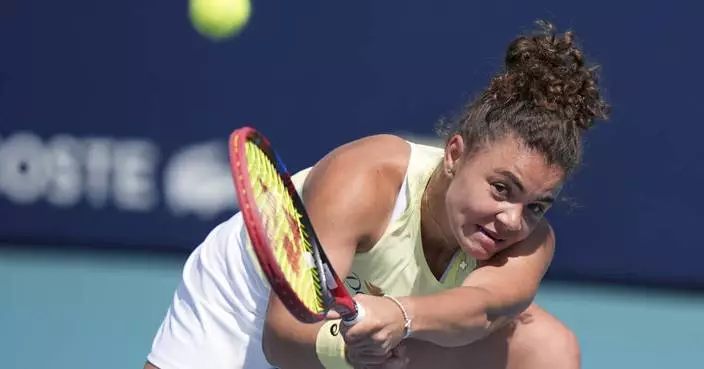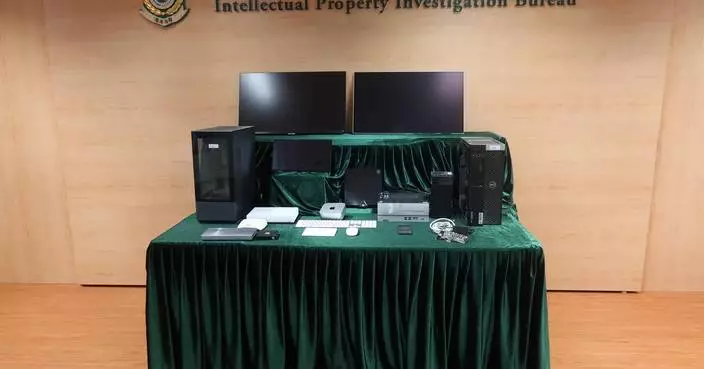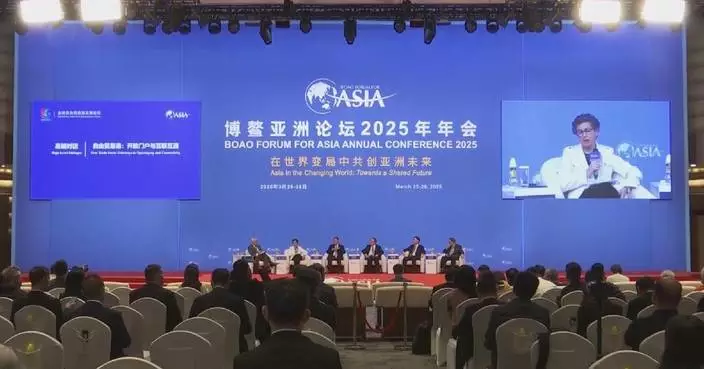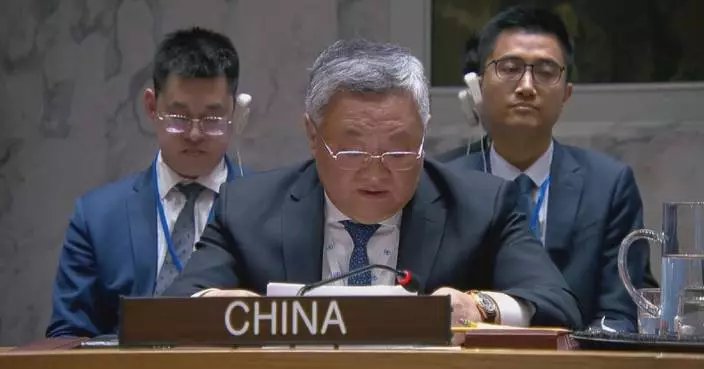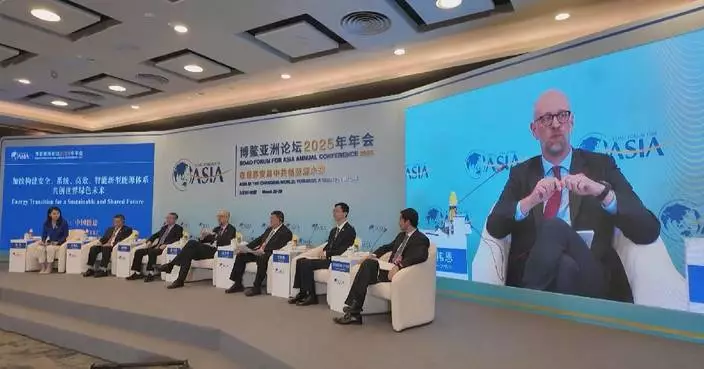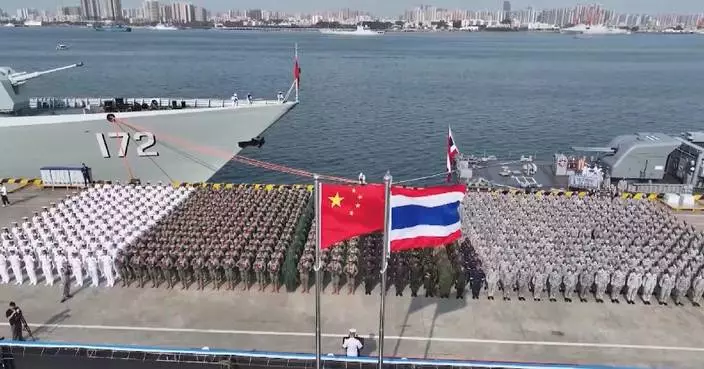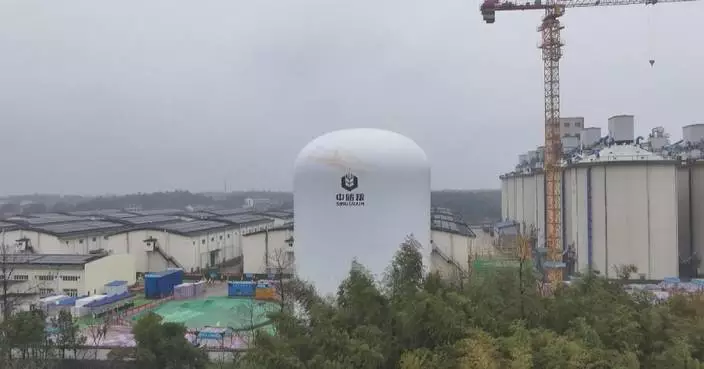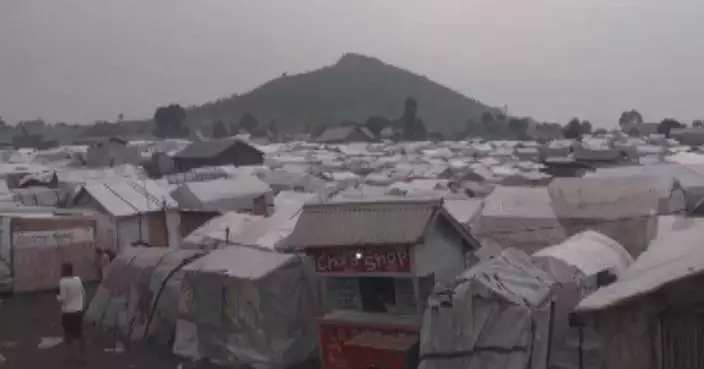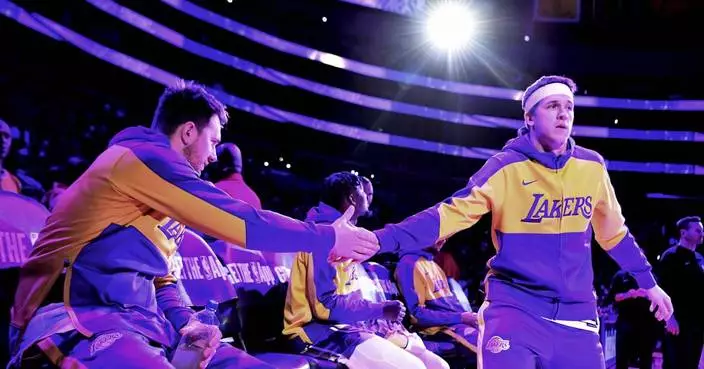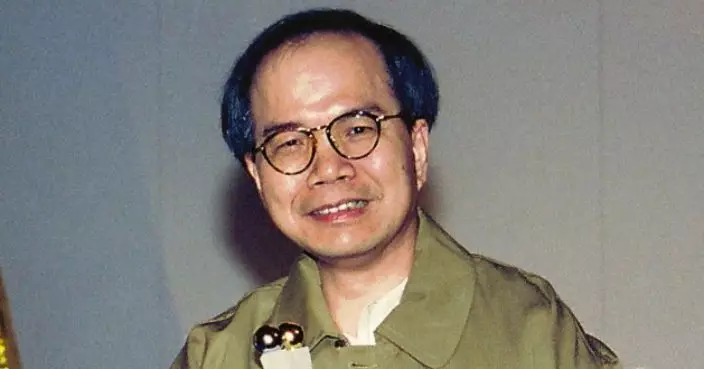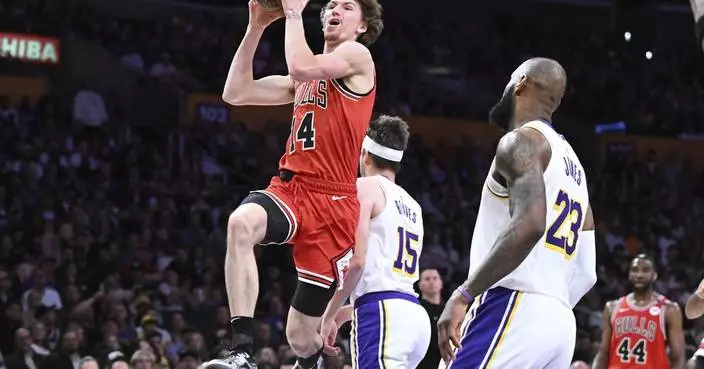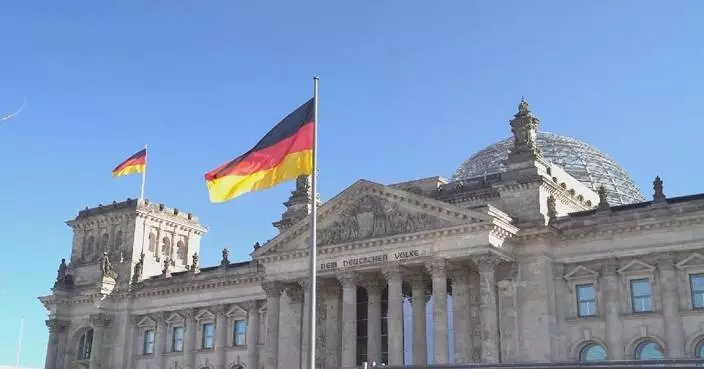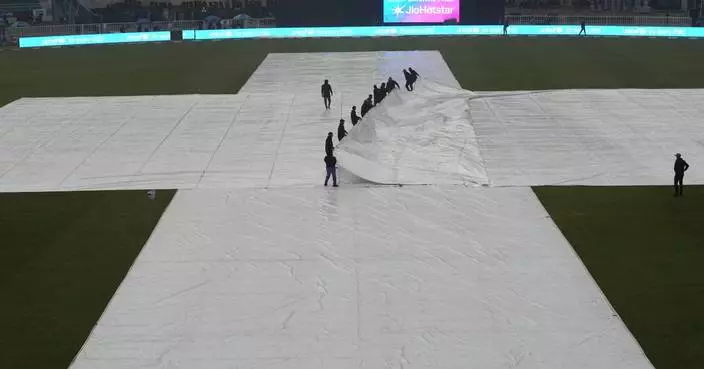NEW YORK (AP) — A jury in Georgia has ordered Monsanto parent Bayer to pay nearly $2.1 billion in damages to a man who says the company's Roundup weed killer caused his cancer, according to attorneys representing the plaintiff.
The verdict marks the latest in a long-running series of court battles Monsanto has faced over its Roundup herbicide. The agrochemical giant says it will appeal the verdict, reached in a Georgia courtroom late Friday, in efforts to overturn the decision.
The penalties awarded include $65 million in compensatory damages and $2 billion in punitive damages, law firms Arnold & Itkin LLP and Kline & Specter PC said in a statement. That marks one of the largest verdicts in a Roundup-related case to date.
Plaintiff John Barnes filed his lawsuit against Monsanto in 2021, seeking damages related to his non-Hodgkin’s lymphoma. Arnold & Itkin attorney Kyle Findley, the lead trial lawyer on the case, said the verdict will help put his client in a better position to get the treatment he needs going forward.
“It’s been a long road for him ... and he was happy that the truth related to the product (has) been exposed,” Findley told The Associated Press on Sunday. He called the verdict an “important milestone” after "another example of Monsanto’s refusal to accept responsibility for poisoning people with this toxic product.”
Germany-based Bayer, which acquired Monsanto in 2018, has continued to dispute claims that Roundup causes cancer. But the company has been hit with more than 177,000 lawsuits involving the weedkiller and set aside $16 billion to settle cases.
In a statement, Monsanto said Friday's verdict “conflicts with the overwhelming weight of scientific evidence and the consensus of regulatory bodies and their scientific assessments worldwide.” The company added that it continues “to stand fully behind the safety” of Roundup products.
For a variety of crops — including corn, soybeans and cotton — Roundup is designed to work with genetically modified seeds that resist the weedkiller’s deadly effect. It allows farmers to produce more while conserving the soil by tilling it less.
Some studies associate Roundup’s key ingredient, glyphosate, with cancer, although the U.S. Environmental Protection Agency has said it is not likely to be carcinogenic to humans when used as directed. Still, numerous lawsuits over the weedkiller allege glyphosate does cause non-Hodgkin lymphoma, arguing that Monsanto has failed to warn the public about serious risks for years.
Findley said that evidence relating to Barnes' case show “many years of cover-ups" and “backroom dealings.” He accused Monsanto of ignoring several scientific studies related to the toxicity of Roundup and said the company “tried to find ways to persuade and distract and deny the connection between this product and non-Hodgkin’s lymphoma.”
Friday's decision marks the fourth Roundup-related verdict that Findley's team has won to date — the largest of which was awarded in Philadelphia in January 2024, with damages totaling $2.25 billion. And he said his law firm has “many more clients who are similarly situated as Mr. Barnes.”
Monsanto, meanwhile, also maintains that it “remains committed to trying cases” — and argues its wider record of Roundup-related litigation continues to reinforce the safety of its products. The company said it has prevailed in 17 of the last 25 related trials and “jury verdicts were reduced 90% overall” in past cases that have been finalized.
Bayer has recently renewed and expanded an effort across a handful of U.S. states to protect pesticide companies from claims they failed to warn that a product causes cancer, if labeling otherwise complies with EPA regulations. The company and other industry supports argue that litigation costs are unstainable and could impact Roundup’s future availability. But opponents stress that such legislation would limit accountability.
This story was first published on Mar. 23, 2025. It was updated on Mar. 24, 2025 to correct the third paragraph to show the Georgia jury reached a verdict, not a legal settlement.
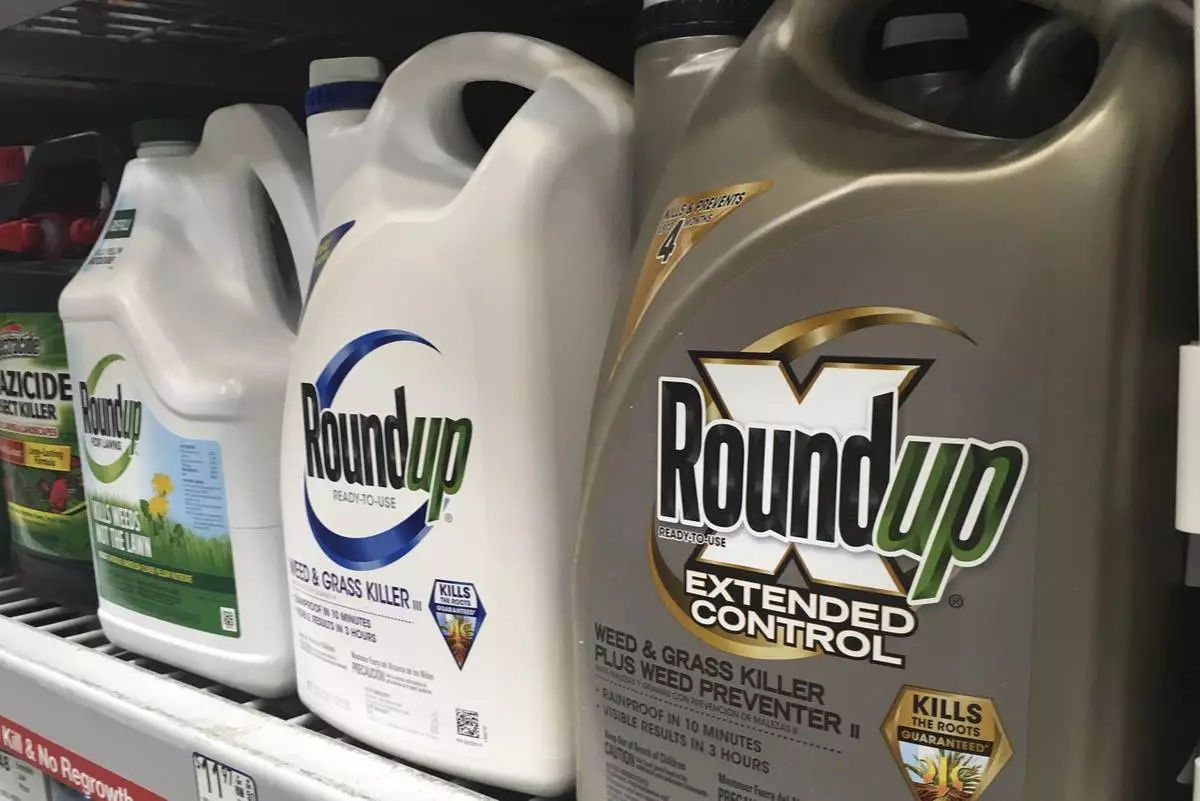
FILE - In this Feb. 24, 2019, file photo, containers of Roundup are displayed on a store shelf in San Francisco. (AP Photo/Haven Daley, File)
PARIS (AP) — French President Emmanuel Macron said Wednesday that a proposed European armed force for possible deployment in Ukraine in tandem with an eventual peace deal could “respond” to a Russian attack if Moscow launched one.
Macron spoke in the evening after talks with Ukraine’s president and ahead of a summit in Paris of some 30 nations on Thursday that will discuss the proposed force for Ukraine.
“If there was again a generalized aggression against Ukrainian soil, these armies would be under attack and then it’s our usual framework of engagement,” Macron said. “Our soldiers, when they are engaged and deployed, are there to react and respond to the decisions of the commander in chief and, if they are in a conflict situation, to respond to it.”
THIS IS A BREAKING NEWS UPDATE. AP’s earlier story follows below.
PARIS (AP) — Their collective name, “coalition of the willing,” suggests that the loose grouping of Ukraine's allies certainly wants to help. But as the nearly three dozen nations gather again for more talks in Paris, it is still far from clear exactly what kind of aid they are preparing that could contribute toward their goal of making any ceasefire with Russia lasting.
French President Emmanuel Macron, who has been driving the coalition-building effort with U.K. Prime Minister Keir Starmer, is expecting 31 delegations around the table Thursday morning at the presidential Elysee Palace. That's more than Macron gathered for a first meeting in Paris in February — evidence that the coalition to help Ukraine, possibly with boots on the ground, is gathering steam, according to the presidential office.
The big elephant in the room will be the country that's missing: the United States.
U.S. President Donald Trump's administration has shown no public enthusiasm for the coalition's discussions about potentially sending troops into Ukraine after an eventual ceasefire to help make peace stick. Trump’s special envoy, Steve Witkoff, has dismissed the idea of a European deployment or even the need for it.
“It's a combination of a posture and a pose and a combination of also being simplistic,” he said in an interview with former Fox News host Tucker Carlson.
That's not the view in Europe. The shared premise upon which the coalition is being built is that Russian President Vladimir Putin's actions in Ukraine — starting with the illegal seizure of the Crimean Peninsula in 2014 and culminating in the 2022 full-scale invasion that unleashed all-out war — shows that he cannot be trusted. They believe that any peace deal will need to be backed up by security guarantees for Ukraine, to deter Putin from launching another attempt to seize it.
European officials say that in any peace-deal scenario, Ukraine's first line of defense against any future Russian aggression would be Ukraine's own army. Options for the coalition of allies could include providing more military training to help replenish the Ukrainian army's losses, which Kyiv keeps secret but are heavy after more than three years of intense fighting.
That’s something allies already have been doing, preparing more than 75,000 Ukrainian troops for battle against Russia’s larger and expanding military.
The 27-nation European Union is also pressing ahead with a so-called steel “porcupine strategy” aimed at making Ukraine an even tougher nut for Russia to crack, by strengthening its armed forces and defense industry. Britain is also pledging continued military aid so Ukraine can keep fighting if peace talks fail or a ceasefire is broken.
The basket of possible options that military chiefs and planners have been looking at in their own meetings in Paris and in the U.K. includes an array of scenarios that they've been preparing for their government leaders to consider and, ultimately, green light.
A possible option that France has been pushing would be a deployment by coalition members of a sizable force — large enough to serve toward deterrence — in central Ukraine, somewhere along the Dnieper River, away from the frontlines, said a French official who spoke on condition of anonymity about the closed-door military planning discussions.
The official said other possible options being examined are deploying a support force even further away from the fronts, in Ukraine's far west, or in a neighboring country.
British officials have said a Europe-led force could consist of between 10,000 and 30,000 troops — which would be a considerable effort for nations that shrank their militaries after the Cold War but are now rearming.
A second French official, at the president's office, said France does not envisage a troop contingent serving in Ukraine as “combat forces” but rather as “reassurance forces. That is to say signals of our presence, of support for Ukraine in various military tasks." The official also spoke anonymously, under the French presidency’s customary practices.
The official said missions and contours of the proposed force are still a work in progress but the aim remains for France and Britain to put it together with “numerous European countries.”
But some countries are more comfortable with a potential deployment than others — not least because one of the big unknowns is whether U.S. military forces and intelligence agencies would get Trump's green light to offer back-office support for any European force in Ukraine.
Russia is bristling at the prospect of a force involving NATO-nation troops and demanding that military and intelligence aid for Ukraine cease.
The war has turned the leaders of France and Ukraine into close partners. Macron and President Volodymyr Zelenskyy will get the summit ball rolling by meeting first together at the Elysee on Wednesday night, to prepare the talks due to start at 10 a.m. the next morning. Macron will give a press conference after the discussions.
AP journalists Jill Lawless and Emma Burrows in London and Lorne Cook in Brussels contributed.
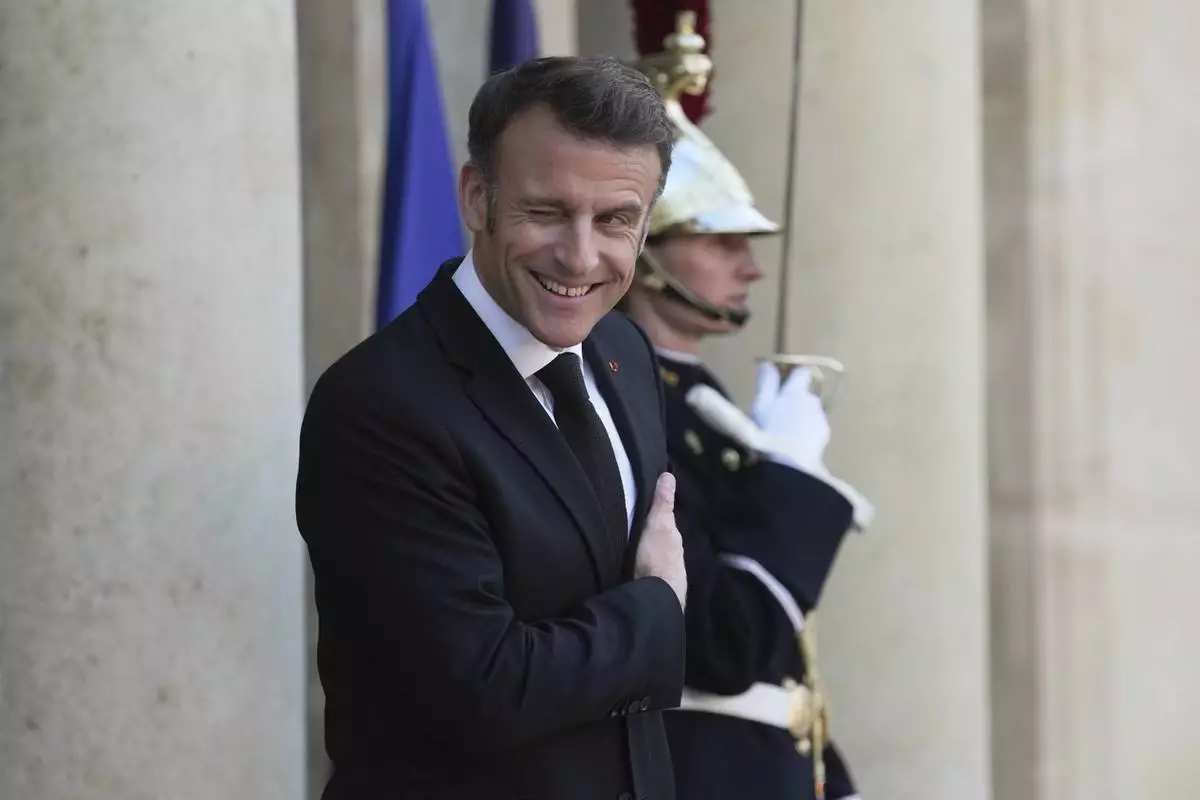
French President Emmanuel Macron waits for Ukrainian President Volodymyr Zelenskyy before their meeting to prepare Thursday's gathering of the so-called "coalition of the willing" nations that are allies of Ukraine, Wednesday, March 26, 2025 at the Elysee Palace in Paris. (AP Photo/Thibault Camus)
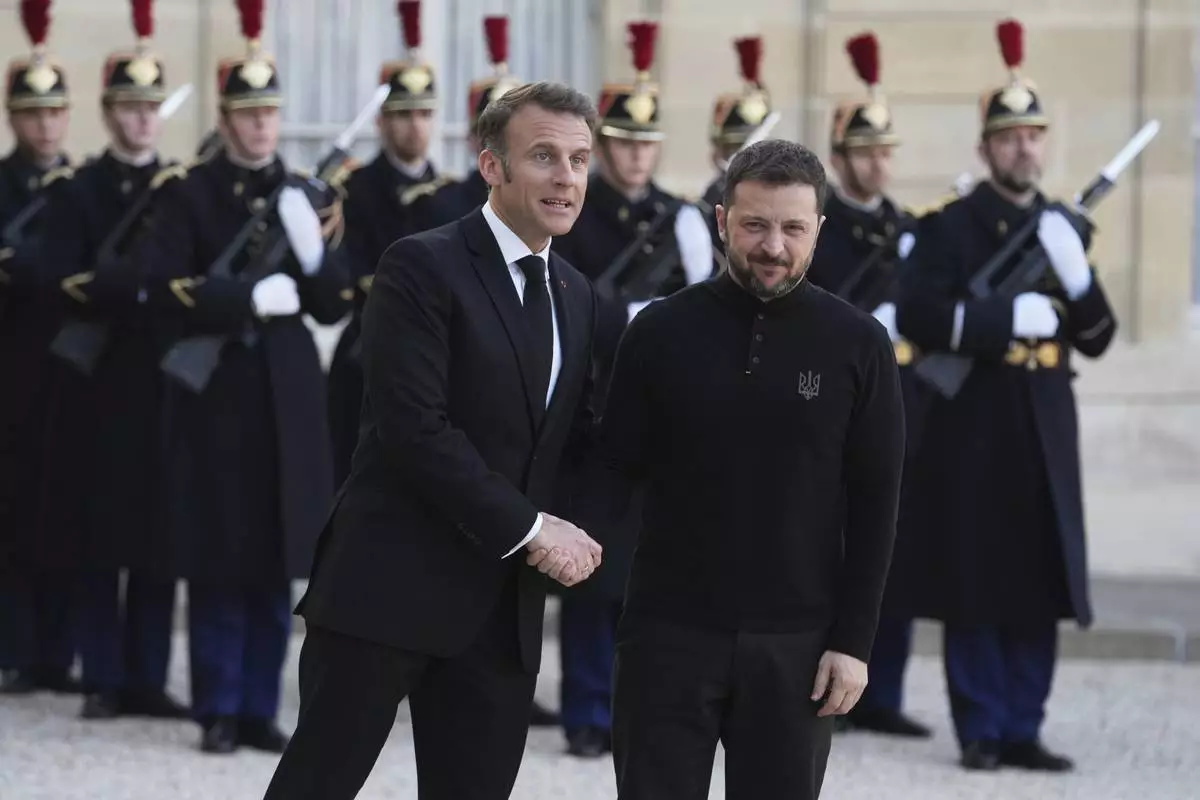
French President Emmanuel Macron, left, welcomes Ukrainian President Volodymyr Zelenskyy before their meeting to prepare Thursday's gathering of the so-called "coalition of the willing" nations that are allies of Ukraine, Wednesday, March 26, 2025 at the Elysee Palace in Paris. (AP Photo/Thibault Camus)
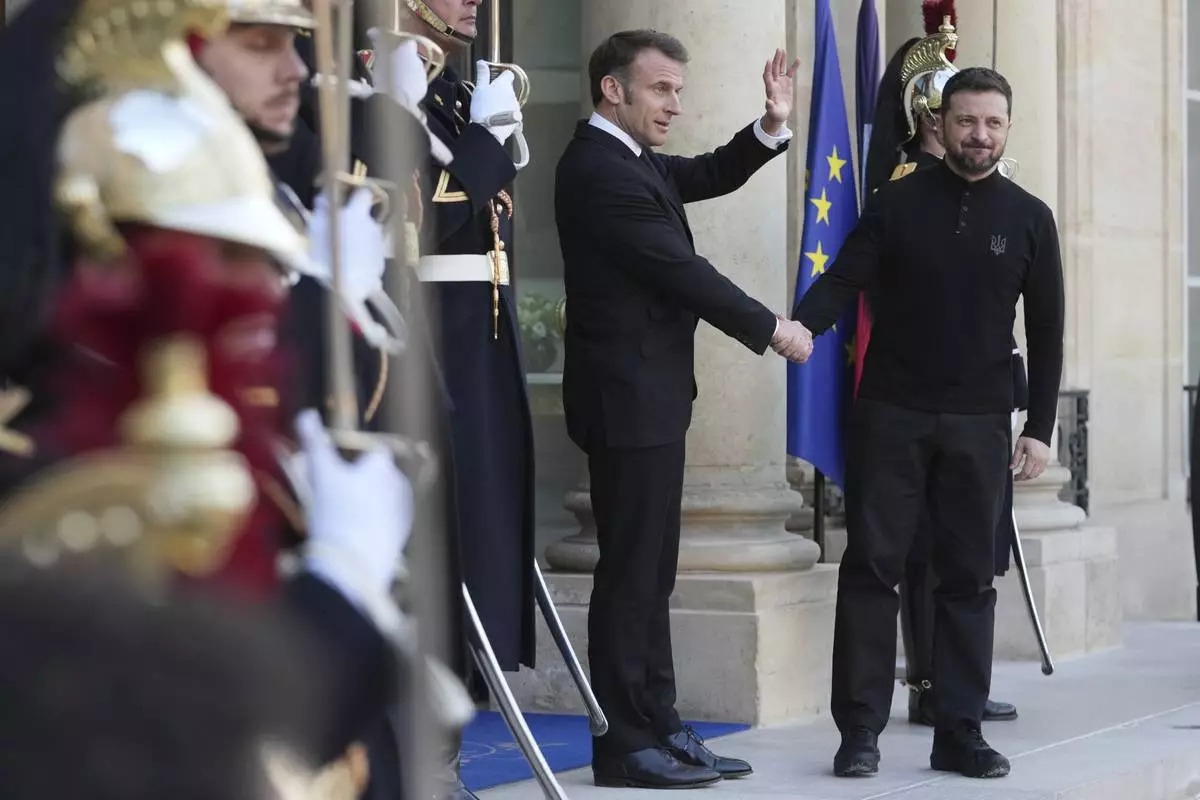
French President Emmanuel Macron, left, welcomes Ukrainian President Volodymyr Zelenskyy before their meeting to prepare Thursday's gathering of the so-called "coalition of the willing" nations that are allies of Ukraine, Wednesday, March 26, 2025 at the Elysee Palace in Paris. (AP Photo/Thibault Camus)
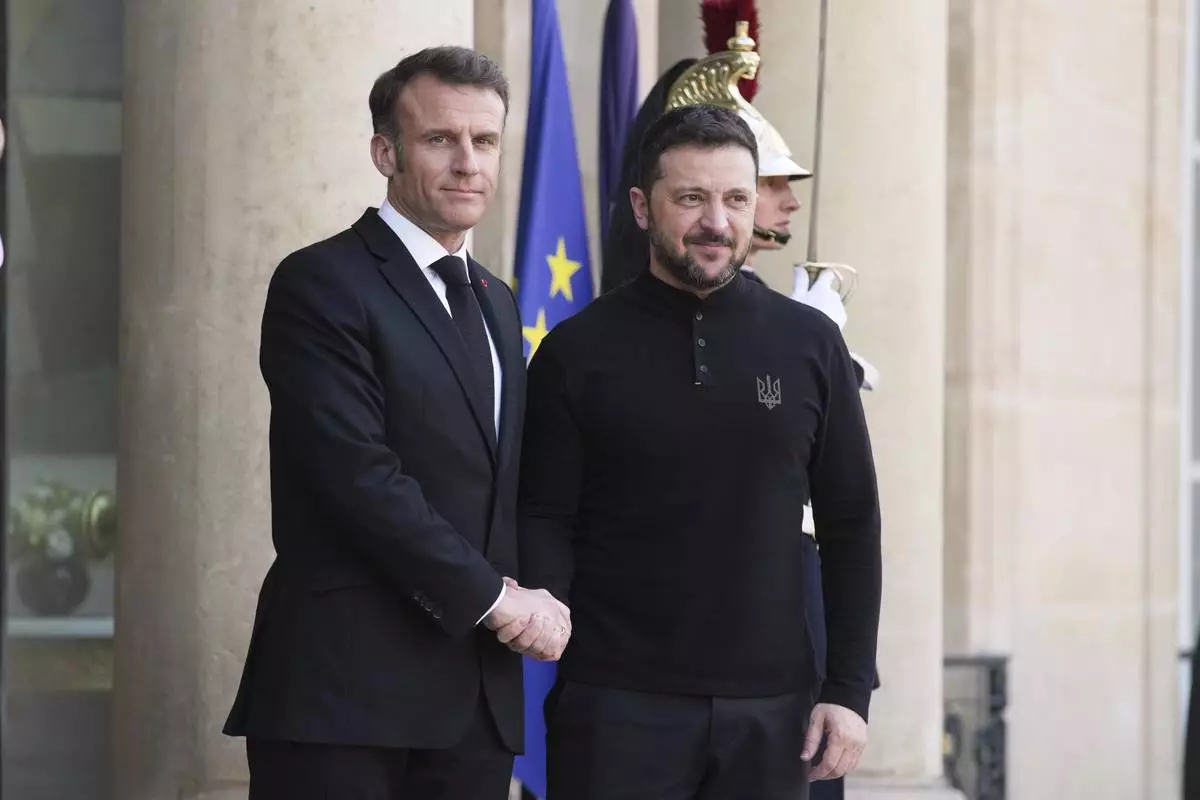
French President Emmanuel Macron, left, welcomes Ukrainian President Volodymyr Zelenskyy before their meeting to prepare Thursday's gathering of the so-called "coalition of the willing" nations that are allies of Ukraine, Wednesday, March 26, 2025 at the Elysee Palace in Paris. (AP Photo/Thibault Camus)
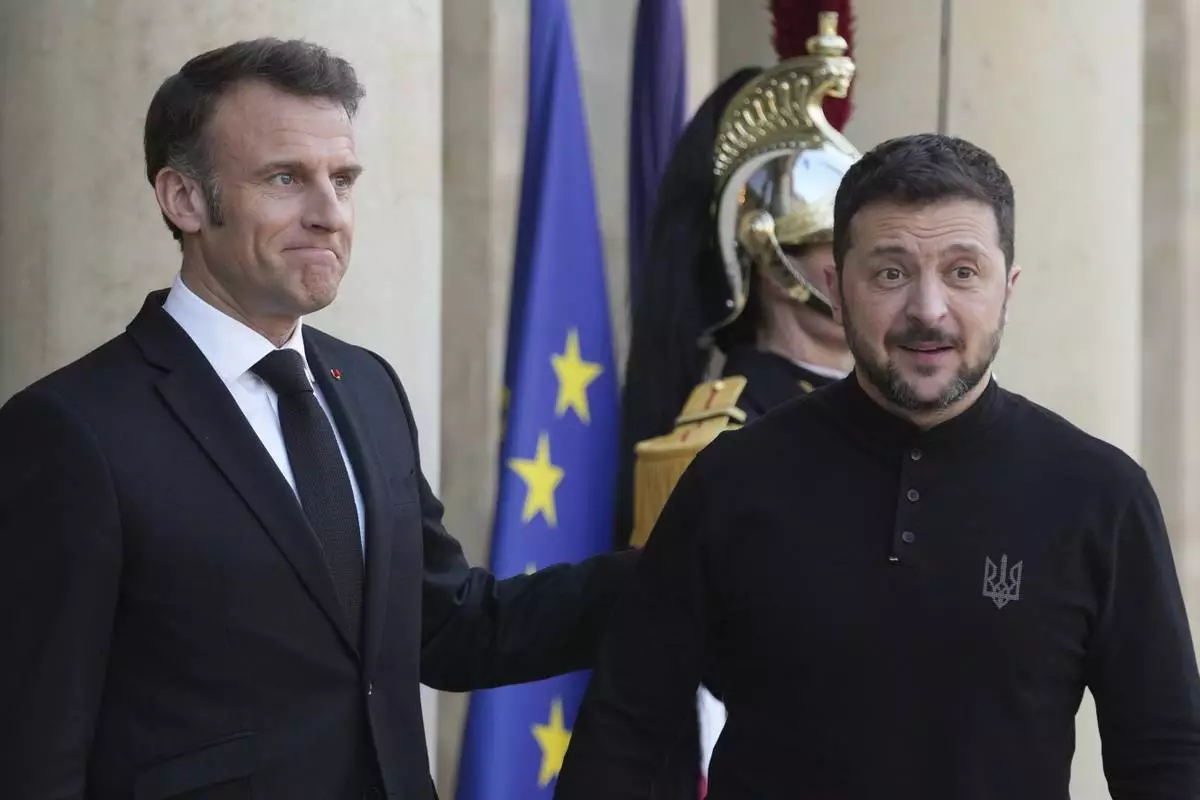
French President Emmanuel Macron, left, welcomes Ukrainian President Volodymyr Zelenskyy before their meeting to prepare Thursday's gathering of the so-called "coalition of the willing" nations that are allies of Ukraine, Wednesday, March 26, 2025 at the Elysee Palace in Paris. (AP Photo/Thibault Camus)
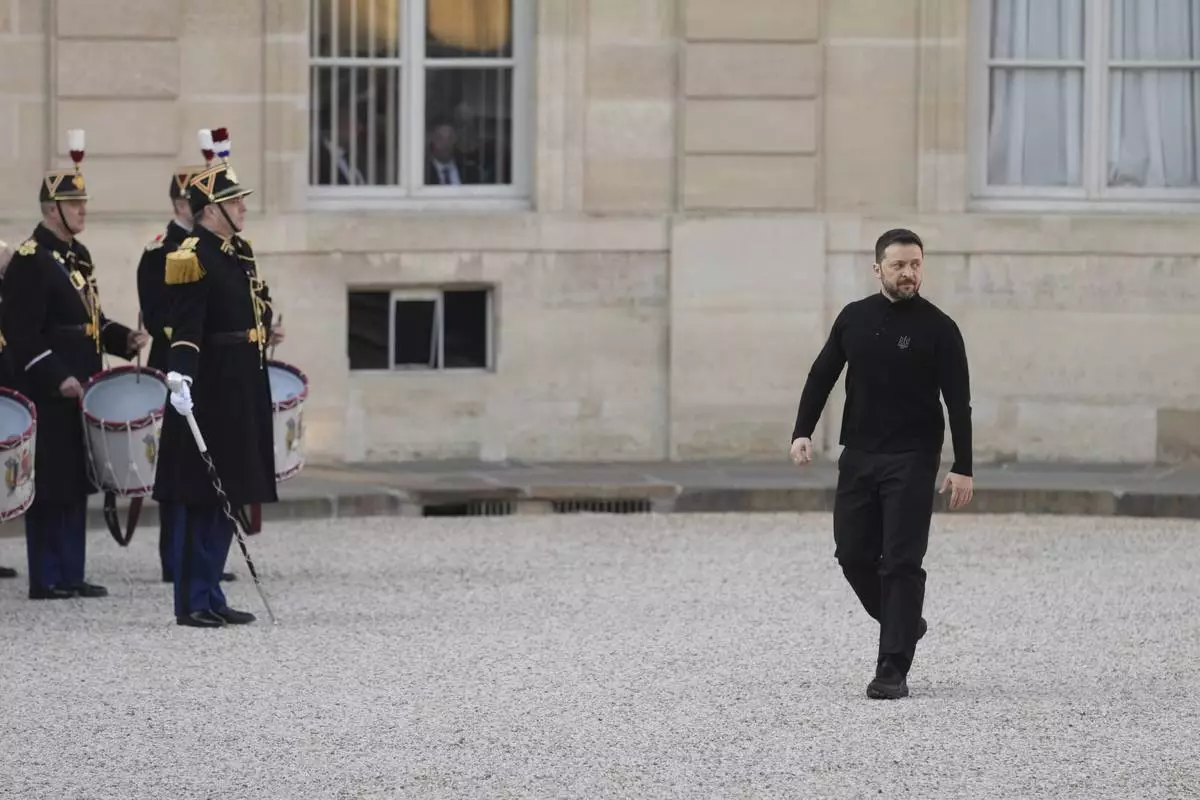
Ukrainian President Volodymyr Zelenskyy arrives before his meeting with French President Emmanuel Macron to prepare Thursday's gathering of the so-called "coalition of the willing" nations that are allies of Ukraine, Wednesday, March 26, 2025 at the Elysee Palace in Paris. (AP Photo/Thibault Camus)
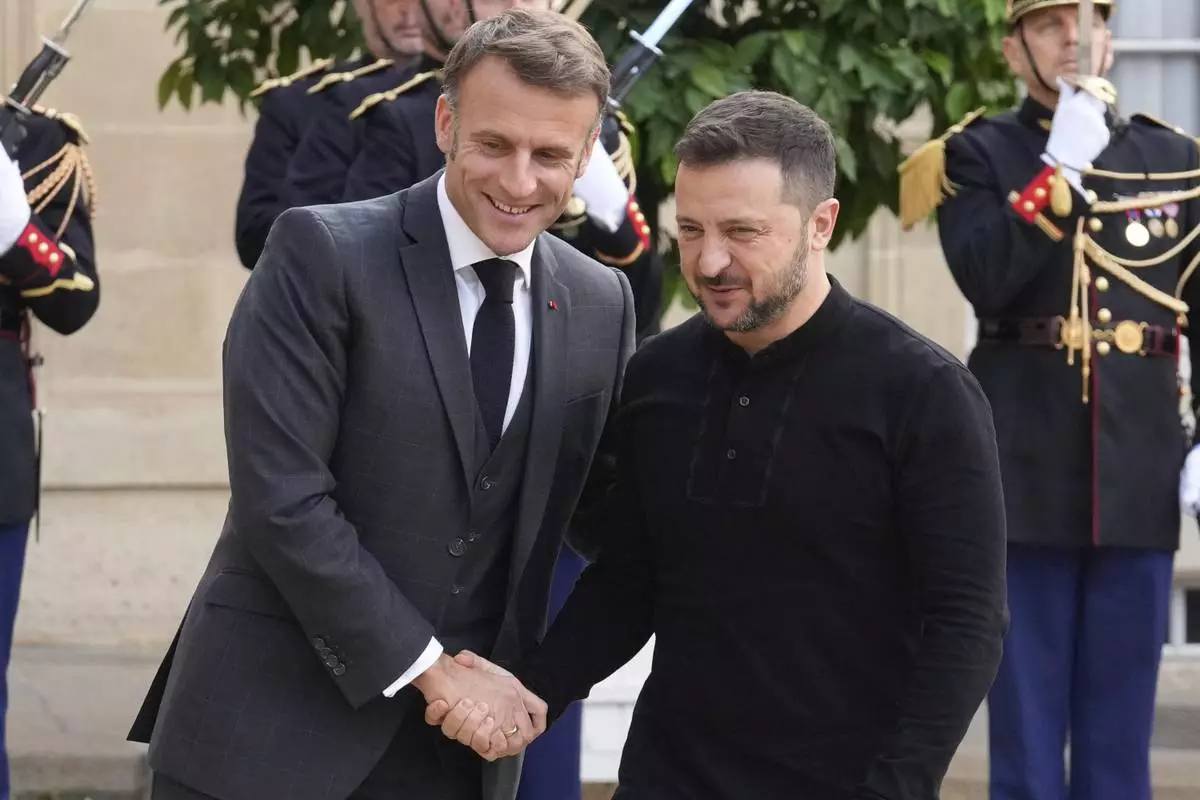
FILE - French President Emmanuel Macron, left, welcomes his Ukrainian counterpart Volodymyr Zelenskyy before a meeting at the Elysee Palace, in Paris, Thursday, Oct. 10, 2024. (AP Photo/Michel Euler, File)



